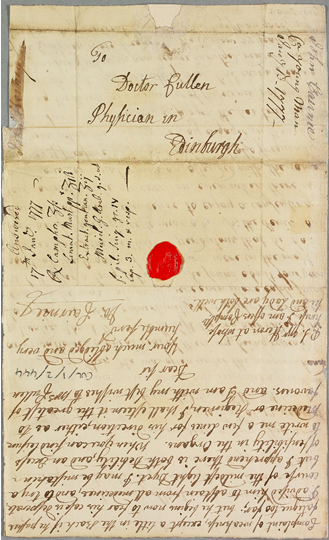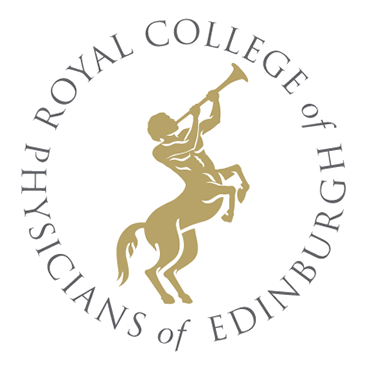
The Consultation Letters of Dr William Cullen (1710-1790) at the Royal College of Physicians of Edinburgh
The Medical Consultation Letters of Dr William Cullen
Introduction
The Cullen Project is a collaboration between the Medical Humanities Research Centre, School of Critical Studies at the University of Glasgow, and the Royal College of Physicians of Edinburgh (RCPE), funded by a major AHRC research grant award (PI: Dr David Shuttleton 2012-15: see Research Team). It presents a publicly accessible, online scholarly edition of one of the most important archives of eighteenth-century medical "consultation letters".
William Cullen began his career as a medical lecturer and pioneer teacher of Chemistry at Glasgow University. He rose to international fame as the leading figure in Edinburgh University medical school and served as president of the RCPE. He was appointed the King's Physician in Scotland and became the most influential medical lecturer of his generation. Alongside his close associates David Hume and Adam Smith, Cullen played an important role in the Scottish Enlightenment. (See William Cullen)
Cullen's private consultations survive as a remarkable archive of several thousand letters. (See under Archive) These include requests for advice from patients or close family members and referrals from attendant physicians and surgeons. Cullen retained his responses, initially as written transcripts then, from 1781, as duplicates made on a "mechanical copier" invented by James Watt. These exchanges with correspondents throughout Britain and abroad include some sustained autobiographical "illness narratives" and intra-physician exchanges. They provide a rich resource for gaining an historical insight into the experience of illness and the effort to cure disease.
The edition has innovative search facilities with supportive editorial apparatus - for further details, and a statement of our editorial principles, see under Methodology.
The Cullen Project website is of value to academics, practitioners, students and the general public interested in the history of:
- William Cullen and eighteenth-century medical practices
- Patients' stories, illness narratives and medical language
- Letter-writing and postal communications
- Food, drink, exercise and travel
- Social relations and family history
Project publications (see under Project Outputs) have examined how Cullen managed his prompt and personal epistolary correspondence and utilised James Watt’s copying machine to revolutionize medical record-keeping. The detailed study of particular case-histories has enabled a re-examination of the fashioning of fashionable diseases in the eighteenth century (by PI Dr David Shuttleton), and the project’s funded PhD student, Dr Jane Corrie, completed a study of how the correspondence reflects eighteenth-century attitudes to old age and retirement. Since its launch in May 2015 (See The Launch), the digital edition has contributed to a range of research and teaching initiatives, within academia and beyond. (See Selected Applications and Citations).
Featured Letter [DOC ID:1347]

Address page of letter to Cullen. 1777 [DOC ID:1347]
Featured Case
The Case of Dr Samuel Johnson who has asthma and dropsy.
See all featured cases.
Quote of the day
I doubt of your having given up chewing Tobacco and I ascribe to it the Heartburn, Windy Stomach & sick fits you complain of
(Dr Cullen to Mr Mackie, October, 1779)
[DOC ID: 4521]
Statistics
| 20,678 | Pages digitised |
| 5,603 | Documents online |
| 3,799 | Documents transcribed |
| 5,298 | People |
| 2,499 | Cases |
| 1,216 | Places |
...
Conditions
Gout
Fever
Cold
Nervous weakness
Rheumatism
Menorrhagia
[See all]


